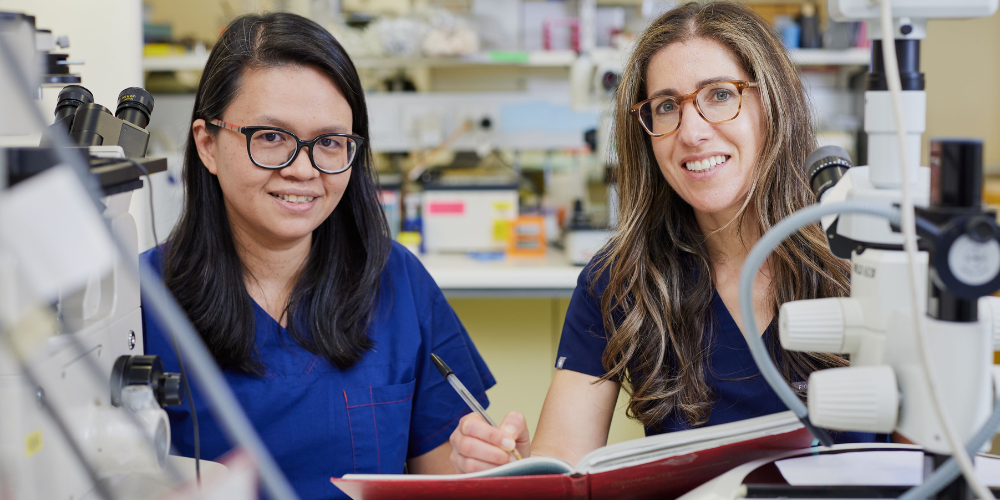
A new report from the Royal Women’s Hospital has thanked the healthcare professionals and medical researchers working in the hospital’s ten research centres for adapting to the nation’s urgent health needs during the course of 2020.
Launching today (4 August), the Women’s Research Report showcases the highlights of ongoing and published research projects responsible for improving the health outcomes for women and newborn babies at the hospital, across Australia and globally.
The Women’s Chief Executive Officer, Dr Sue Matthews, said that while much was paused during the COVID-19 pandemic, the Parkville Precinct was a hub of activity for innovation and research.
“2020 was a remarkable year for our research; despite the challenges, the teams across our ten research centres have made major headway on the health issues impacting women and newborns - and continue to set the standard for research in this space,” Dr Matthews said.
“We ran 59 clinical trials, recruited more than 1,700 patients and had 206 of our research papers peer-reviewed and published. This is a testament to the hard work of our researchers. I’d like to thank them, as well as our collaborators for their outstanding efforts during a challenging year - and our supporters, donors, charitable trusts and patients, past and present, for enabling this to happen.”
The Women’s Director of Research, Professor Peter Rogers, said medical research has never been more responsive than it has been during the past year.
“Whether it’s establishing Australia’s data collection for COVID-19-positive pregnant women or trialling peer support for new mums during the pandemic - it’s clear that leaders in our research team adapted well to the new challenges we were seeing amongst patients,” said Professor Rogers.
“This year’s Research Report shares the highlights of 2020, but there’s plenty more fantastic work that’s been making a positive impact on the health of women and newborn babies. Despite the changing environment at the Women’s, research has remained a priority and I am proud of the determination our team has displayed this year.
“Every research project gives us more knowledge - with this, we can make evidence-based changes in clinical practice. And when we can share the benefits of these changes, we can encourage other healthcare services to do the same. We know our research saves lives, not just at the Women’s, but across the world.”
